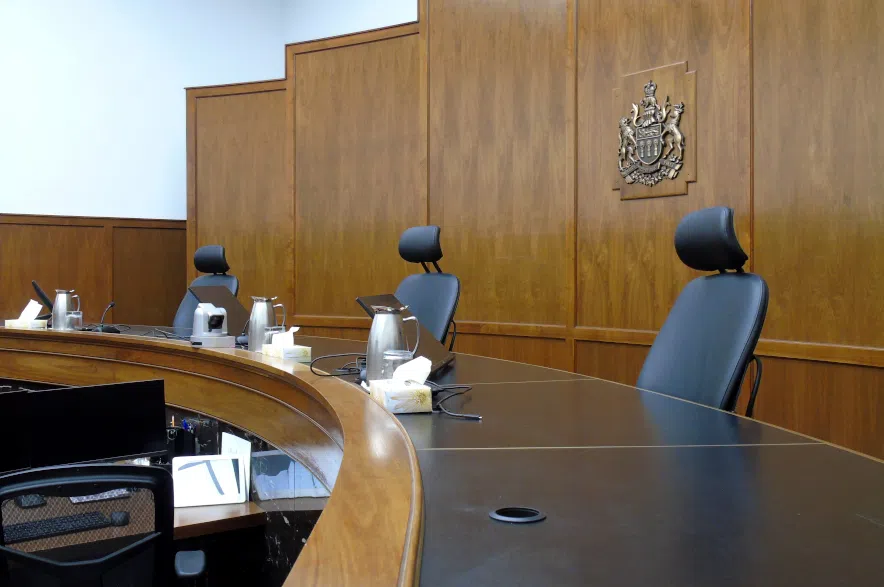Questions around how jurors feel about gang membership, juror bias, and how all that fits into a proper defence have led to the overturning of the conviction against Dillon Whitehawk for two drive-by killings in Regina.
Whitehawk was convicted in 2022 of first-degree murder in the deaths of Jordan Denton and Keenan Toto. They were killed in separate incidents three weeks apart but, in each, the men were walking outside in the North Central neighbourhood when a vehicle pulled up and someone inside shot them.
There were three grounds for appeal in the case, the first and only successful one, had to do with gang membership.
READ MORE: Regina man facing murder charges in three separate deaths over three months
The Crown argued at the trial that Whitehawk was a member of the street gang, Indian Mafia, and that he killed the two men because he thought they were part of a rival street gang and killing them would raise his status in his own gang.
Much of the evidence the Crown lawyers presented had to do with gangs and several of those who testified were members or former members of gangs.
As jurors for trials and inquests are selected, they can be asked questions to find out if they’ll be able to serve properly and if they hold any ideas or beliefs that might make them unable to be impartial.
The judge in Whitehawk’s trial allowed a question to be asked of potential jurors about racial bias but did not allow a question to be asked about bias against members of street gangs.
The judge had said he accepted that most people in Regina are hostile to street gangs as criminal organizations, but didn’t find that it should disqualify a juror because otherwise a jury likely couldn’t be selected, “law-abiding citizens, who constitute the vast majority, oppose criminality,” he wrote.
The judge also wrote he believed the jury would be able to set the bias aside.
The Crown lawyers argued against the questions, saying gang membership is an offence-based characteristic because it, and the criminality that comes with it, are choices.
Whitehawk’s lawyers argued for the questions, saying the gang membership was akin to his occupation, that it touched on matters of race — the gang was the Indian Mafia — his socioeconomic class and was suggestive of criminality or bad personhood.
The Court of Appeal justice found, and two other justices concurred, that bias against gang membership is related to the characteristics or circumstances of Whitehawk, and was prejudicial in a very direct way — agreeing with Whitehawk’s lawyers.
“(The bias being that) because he was a member of a street gang, he would be more likely to be found to have committed the murders, regardless of whether that was in association with a criminal organization,” wrote Justice Jeffery D. Kalmakoff.
In his decision, Kalmakoff discussed the background of jury questions and relevant decisions and still came down to an established two-part test.
“A party seeking to challenge jurors for cause must still demonstrate, based on evidence or on judicial notice, the existence of a relevant widespread bias or prejudice and that it is something that jurors may be unable to set aside notwithstanding the cleansing effect of the trial process,” read the decision.
The justice wrote that the trial judge applied an incorrect legal test on those two parts.
The two convictions have been overturned and a new trial ordered.
Whitehawk won’t be released though. He’s serving a life sentence for the murder of Keesha Bitternose in 2020.











